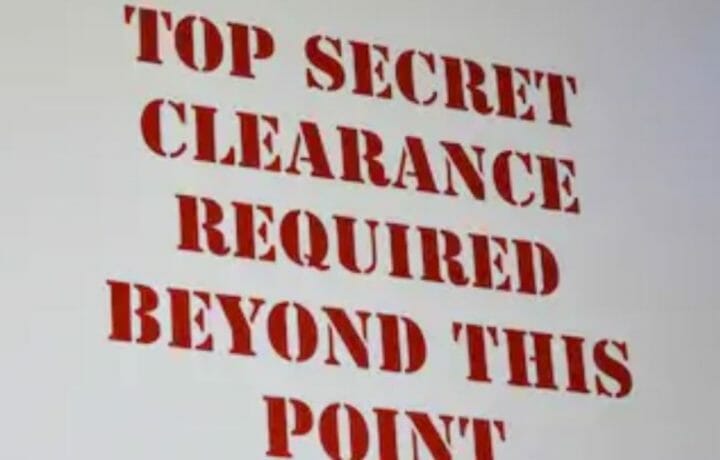Four significant pending changes to federal personnel security policy were mentioned in the published minutes of the last NISPPAC meeting. These changes were reported by Charles Sowell, the former Deputy Assistant Director for Special Security at the Office of the Director of National Intelligence (ODNI):
- Revised Federal Investigative Standards
- Revised Adjudicative Guidelines
- New National Reporting Requirements
- New Polygraph Policy
Revised Federal Investigative Standards (FIS)
Although the revised FIS was mentioned by Sowell, nothing was actually reported in the published minutes of the NISPPAC meeting regarding it. This could be because the revised FIS is protected as “For Official Use Only “(FOUO) information. There was a February 2013 DOD memo concerning the delayed implementation of the revised FIS, and the latest OPM Federal Investigative Services Stakeholder Report also mentioned it at page 34:
With the December 2012 signing of the revised Federal Investigative Standards by Director John Berry and Director James Clapper, the Suitability and Security Executive Agents, our focus will be on reengineering our business processes to implement the standards in a phased and fiscally responsible way, directly supporting the mandate to implement a five-tiered investigative model aligning the investigative requirements for both security clearances and suitability, facilitating reciprocity, and using automation to the maximum extent practicable.
The use of the words, “the mandate to implement a five-tiered investigative model” seems somewhat strange, since OPM and ODNI have the authority to establish the investigative standards and there was no indication that a higher authority had ordered a five-tiered structure.
One can only speculate at why OPM and ODNI chose to withhold the details of this revision of the FIS when previous versions have appeared in publicly accessible documents. Perhaps the revised FIS contains a sensitive list of all Government and commercial databases that will be used as part of a new enhanced Automated Record Checks (ARC), which will form the foundation of all types of personnel security investigations. It’s also possible that, unlike the prior FIS, the revised FIS may contain provisions for cyber-vetting and details of how social media sites can be used to collect relevant information. Perhaps least likely possibility is the addition of a “traffic analysis” component to some periodic reinvestigations that the Government would prefer not to disclose publicly.
Revised Adjudicative Guidelines (AG)
The NISPPAC report indicated that the revised AG is in the final stages of coordination and may be promulgated via Security Executive Agent Directive 200 (SEAD 200) later this year. Work started on revising the AG well over two years ago. The current AG, approved in December 2005, is in need of general updating to remove redundancies and accommodate social and cultural changes. Among the needed changes are:
- Elimination of superfluous guidelines. For example there is nothing in Guideline D (Sexual Conduct) that is not adequately addressed under Guideline J (Criminal Conduct), Guideline E (Personal Conduct), and Guideline I (Psychological Conditions).
- Combining and/or grouping guidelines. For example Guideline B (Foreign Influence) shares security concerns covered in Guideline C (Foreign Preference), and Guideline L (Outside Activities).
- Reconciliation of Guideline C in ODNI ICPG 704.2 with the December 2005 AG. Currently the two versions of Guideline C are significantly different and in many ways contradictory.
- Specific guidance regarding medical marijuana use and its relationship to the Bond Amendment. The current AG does not include any mitigating factors specifically for past or present medical marijuana use and provides no exception to the Bond Amendment, which requires clearance denial for any person who is an unlawful user of a controlled substance. Any use of marijuana is still a criminal offense under federal law.
National Reporting Requirements
In March 2013 ODNI began SEAAC (Security Executive Agent Advisory Committee) coordination of the first-ever National Reporting Requirements document, which will eventually be issued as SEAD 400. Currently each federal agency has its own self-reporting requirements for cleared personnel. These are lists of conduct and conditions that could affect a person’s clearance eligibility and must be reported to their security officer. These reporting requirements can vary dramatically from agency to agency, and major differences exist for personnel with collateral clearances versus Special Access Program (SAP) clearances. Some reporting requirements are so vague that no one knows what they mean. For instance DOD requires reporting of “Acts of omission or commission that indicate poor judgment.”
Standardized Government-wide reporting requirements are sorely needed. Hopefully SEAD 4 will contain basic reporting requirements for all collateral clearance and SAP clearance holders and allow individual agencies to supplement the basic requirements with agency-unique reporting requirements.
New Polygraph Policy
In November 2012 a new ODNI national polygraph policy was in coordination with a national polygraph working group, and in March 2013 the policy was being coordinated with the Office of Management and Budget (OMB). The objectives of the new policy are to clarify existing practices for agencies that use the polygraph and to ensure standardization and consistency. The current interagency polygraph policy is based on a 1998 Memorandum of Understanding signed by the 18 federal agencies that operated polygraph programs and is primarily focused on reciprocity issues.
In July 2012 a series of news articles appeared alleging abuse of polygraph procedures at the National Reconnaissance Office (NRO). This prompted requests from Senator Charles Grassley and Representative Rush Holt to the DOD Inspector General (IG) and to the ODNI IG to investigate the allegations. An investigation by the NRO IG with ODNI IG assistance was initiated. In late July 2012 the Director of National Intelligence (DNI) directed an evaluation of the use of federal personnel security polygraph programs, the results of which led to the DNI’s decision to create a national polygraph policy. The DNI subsequently convened an interagency polygraph working group to develop the new policy.
It was initially anticipated that the new policy would be issued in about February 2013, but OMB coordination has resulted in some delays.
Copyright © 2013 Federal Clearance Assistance Service. All rights reserved.




